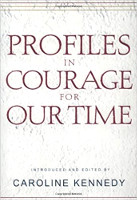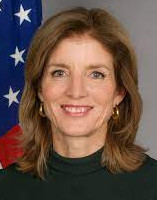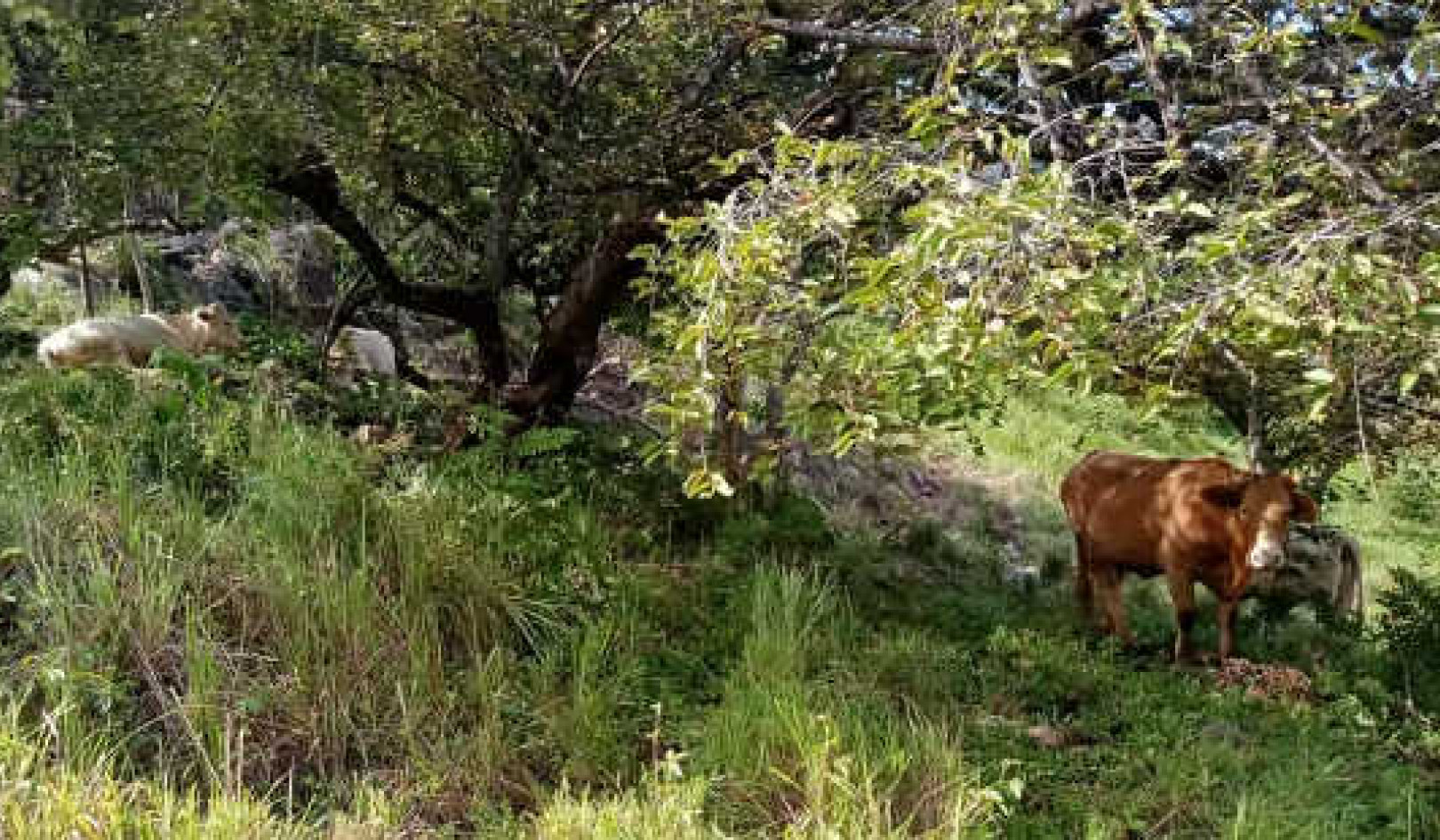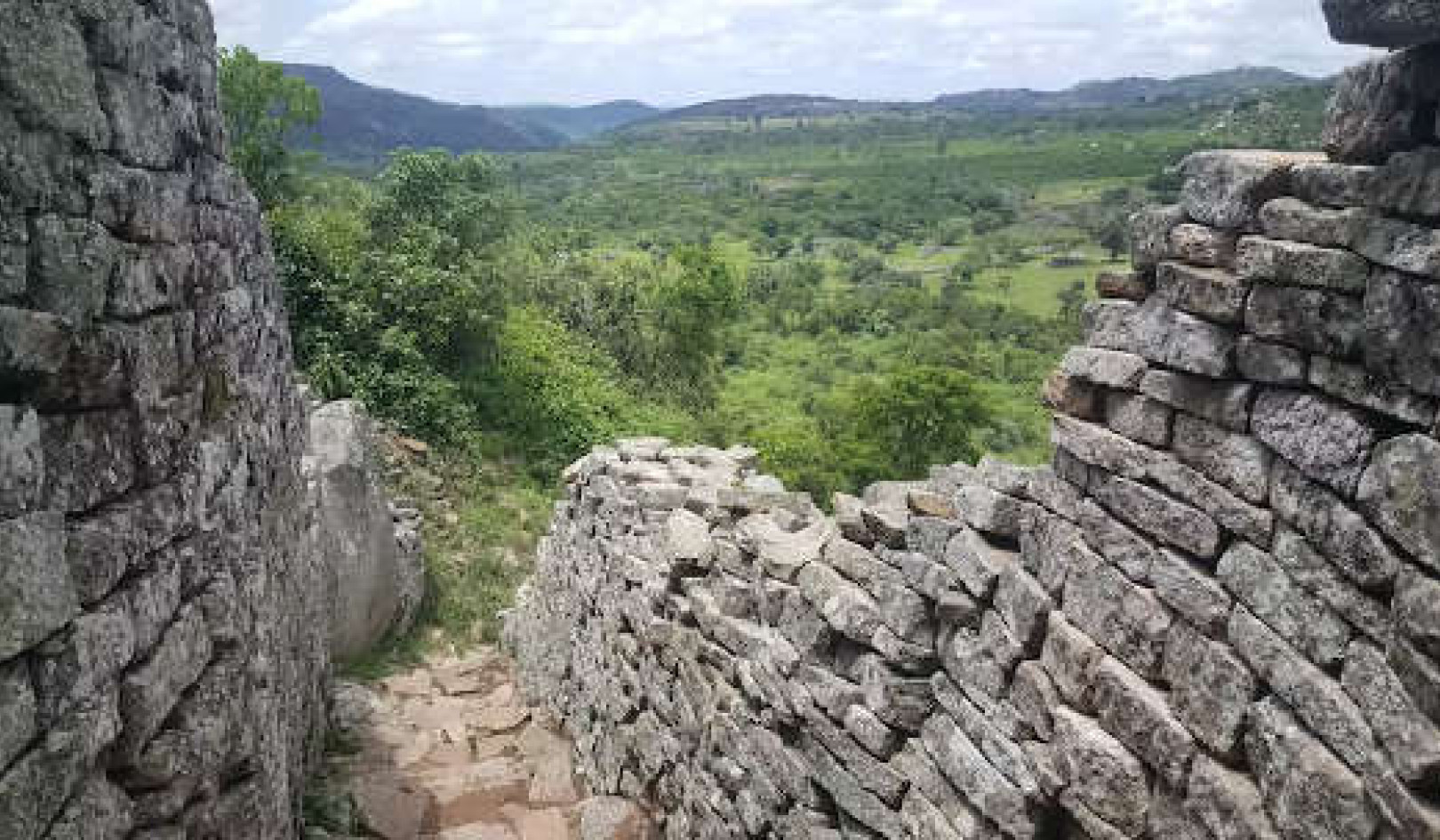
Image by Sarah Richter
During the debate on the Patients' Bill of Rights, I took my daughter, Rose, to see her Great Uncle Teddy (Kennedy) at work in the United States Senate. When we arrived, he was speaking on the floor, so we waited in the colorful hallway outside the Senate Chamber.
We spotted a few senators talking quietly with their staff members. Around a corner, throngs of visitors shuffled past as pages and interns ran for the elevators, and lobbyists waited by the marble busts -- a typical morning in the Capitol.
Thrilled to see us when he emerged from the chamber, Teddy led us up stairs, around corners, into side chambers in search of his colleagues and friends. We seemed to be at the end of our tour when he grabbed Rose's arm and said, "You haven't seen the Senate Reception Room." Off we went again, loping to keep up, until we turned a corner and stopped.
I looked up at the ceiling and saw portraits of legendary nineteenth-century senators, Daniel Webster, Henry Clay, John C. Calhoun -- men who had followed their conscience in pursuit of the national interest -- as I listened to Teddy tell the story of how my father, John F. Kennedy, had gotten the idea for his Pulitzer prize-winning book, Profiles in Courage.
Believing in Government as a Noble Profession
My father's own political career, that of his brother Bobby, and now for so many years the work Teddy has done, inspired a generation of Americans to believe in the power of government and to share the conviction that politics can truly be a noble profession. As I stood in that room, I felt a continuity of spirit reaching across time and into the future as I looked at Teddy and Rose.
In Profiles in Courage, my father told the stories of eight senators who acted on principle and in the national interest, even though it put their own political careers at risk. One was Daniel Webster of Massachusetts, the greatest orator of his time, who voted for the Compromise of 1850, which prevented the South from seceding and preserved the Union for an additional, and critical, ten years. His vote placed him at odds with his constituents and his party, and it cost him a chance to be president.
Another was Thomas Hart Benton, the fiery Missouri senator who fought to keep slavery from expanding West despite representing a slave-holding constituency that ultimately dismissed him from office after thirty years of statesmanship.
Perhaps the most dramatic story is that of Edmund G. Ross, newly elected from Kansas, who followed his conscience, rather than the wishes of his party, and cast the deciding vote against the impeachment of President Andrew Johnson, knowing it would cost him his career. "I ... looked down into my open grave," Ross later wrote of the moments before he cast his vote. Neither Ross nor the seven other Republican senators who voted with him were ever returned to the Senate.
The Courage To Do What's Right For Your Country
Each of these men displayed a rare form of courage, sacrificing their own future, and that of their families, to do what they believed was right for our country. Their example comes down to us across the years, their stories are part of our history, and their spirit lives on.
The John F. Kennedy Profile in Courage Award is presented annually to an elected official who carries on this tradition. When we created the award in 1990, some doubted we would be able to find politicians worthy of the honor. They were wrong. This book (Profiles in Courage for our Time) tells the stories of men and women at all levels of government, in all parts of our country, across the political spectrum, who have all stood fast for the ideals of America.
The courage celebrated here comes in many forms. It is the courage to compromise, as well as the courage to stand alone, the courage to cross party lines and build consensus, as well as the courage to stay the course. Sometimes one single selfless act sums up a career. At other times, a politician must follow the law, or his conscience, over a course of time, hoping that ultimately his courage will be recognized when passions have cooled.
Acting with Conscience
At first, and then again, we sought to honor politicians like those in the original book, whose singular acts of courage in protecting the national interest put their own career at risk. When President Gerald R. Ford pardoned former President Richard Nixon, barely one month after taking office at the height of the Watergate scandal, he was almost universally condemned. Yet that act of conscience in the national interest, though it may have cost Ford the presidency, has stood the test of time.
Many of the stories in my father's book revolved around the crisis of slavery that tore our country apart in the nineteenth century. The modern struggle for civil rights has produced counterparts of equal bravery. There are men like Congressman Carl Elliott from Alabama and Congressman Charles Weltner of Georgia. Elliott fought for equal opportunity in education and was redistricted out of his congressional seat in retaliation for his principled stand. Weltner took an oath to support his party ticket until segregationist Lester Maddox became the candidate for governor, whereupon Weltner followed his conscience and resigned his seat, rather than violate his oath or his belief that segregation was wrong.
The Committee revisited the civil rights movement in 2001 on the fortieth anniversary of the Freedom Rides, when we presented Congressman John Lewis with a Lifetime Achievement Profile in Courage Award. In spite of brutal beatings and more than forty arrests, Lewis has never wavered in his commitment to civil rights, human rights, nonviolence, and securing for all Americans perhaps the most fundamental right in a democracy: the right to vote.
Local & Regional Interests vs. Special Interests
Local battles are often among the most intense political fights, for public servants are placed in conflict with friends, neighbors, and colleagues with whom they share a lifetime of experience. Often too, their family's security is at risk. Rage, anger, and hostility can be directed not only at public officials, but also at those they love.
Inspiring courage was demonstrated by Judge Charles Price when he ruled against another judge's defiantly unconstitutional courtroom display of the Ten Commandments. The Award was also given to County Attorney Nickolas Murnion, who stood alone for the rule of law against the irrational and heavily armed Freemen, and to School Superintendent Corkin Cherubini, who took on an entrenched system of race-based tracking in the schools of Calhoun County, Georgia.
Other awards recognize that new forms of courage are required to meet the challenges of our changing political landscape. In modern times, regional interests often become subsumed by special interests. Some of today's most difficult conflicts revolve around those who would bend the system to serve their own ends. The politicians who take them on do so at grave risk. These battles may require the courage to battle party leadership rather than local constituents, yet the fight is just as fierce and the stakes are just as high. Congressmen Mike Synar and Henry B. Gonzalez, Governor Jim Florio, and Senators John McCain and Russell Feingold were willing to risk their careers to preserve the integrity of our system.
New groups of Americans -- women, African Americans, Latinos -- have entered the political system, embracing a different kind of courage: the courage to compromise. Those entering the political system from historically disenfranchised groups are often taking a great risk simply by running for office. Once elected, they frequently are pitted against established and powerful interests. At times, they risk not only their political advancement but their physical safety, even though they remain popular with their constituents. Former California State Senator, and then U.S. Representative Hilda Solis, who brought the issue of environmental justice to the forefront on behalf of the people of her ravaged district, exemplifies this kind of courage.
The Courage to Compromise
The courage to compromise was honored in a different way when we presented a silver lantern to the Irish Peacemakers in a special ceremony in 1998. As political leaders who signed the Good Friday agreement described the fear they overcame in reaching out to their historic enemies in the spirit of peace, we were all reminded that the need for leadership is constant and continuing. These men and women from across the political spectrum gave life to the principle that each citizen has a responsibility to contribute by answering the call of his own conscience. As we work to spread democracy around the world, we must also recognize and reward international acts of political courage that may exist within systems different from our own.
Political courage is celebrated in this book, but there are other forms of courage that share its spirit. In the aftermath of the terrorist attacks on the World Trade Center, the extraordinary bravery of our public servants -- police officers, firefighters, search and rescue teams, and elected public officials -- reminded all Americans how much we depend on courageous leadership in times of crisis and how grateful we are to those who live their lives with honor.
My father ended his book with the following words that bear repeating now:
"In whatever arena of life one may meet the challenge of courage, whatever may be the sacrifices he faces if he follows his conscience -- the loss of his friends, his fortune, his contentment, even the esteem of his fellow men -- each man must decide for himself the course he will follow. The stories of past courage can define that ingredient -- they can teach, they can offer hope, they can provide inspiration. But they cannot supply courage itself. For this, each man must look into his own soul." -- John F. Kennedy, Profiles in Courage
-- CAROLINE KENNEDY, October 1, 2001
Reprinted with permission of the publisher,
Hyperion. ©2002. http://www.hyperionbooks.com
Article Source
Profiles in Courage for Our Times
by Caroline Kennedy.
 In the spirit of John F. Kennedy's Pulitzer Prize-winning Profiles in Courage, 13 essays honoring modern-day political heroes, penned by a collection of stellar authors
In the spirit of John F. Kennedy's Pulitzer Prize-winning Profiles in Courage, 13 essays honoring modern-day political heroes, penned by a collection of stellar authors
Nearly half a century after then-Senator John F. Kennedy was awarded the Pulitzer Prize for Profiles in Courage, his masterful portrait of American heroes, the words "politician" and "courage" are rarely uttered in the same breath. But, as this celebration of modern political bravery amply demonstrates, there are countless examples of heroism among today's elected officials. Profiles in Courage for Our Time pays tribute to 13 such heroes, each a recipient of the prestigious Profile in Courage award.
About the Author
 Caroline Kennedy is the editor of the New York Times bestselling The Best-Loved Poems of Jacqueline Kennedy Onassis and co-author of The Right to Privacy and In Our Defense: The Bill of Rights in Action. She serves as president of the John F. Kennedy Library Foundation.
Caroline Kennedy is the editor of the New York Times bestselling The Best-Loved Poems of Jacqueline Kennedy Onassis and co-author of The Right to Privacy and In Our Defense: The Bill of Rights in Action. She serves as president of the John F. Kennedy Library Foundation.
Caroline is the editor of ten New York Times bestselling books on American history, politics, constitutional law and poetry, including She Walks in Beauty: A Woman's Journey Through Poems and A Family of Poems. She works to bring the power of the spoken work to students in New York City schools.

























